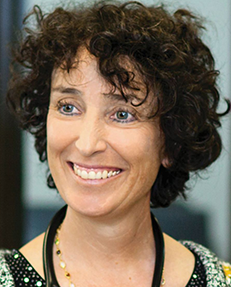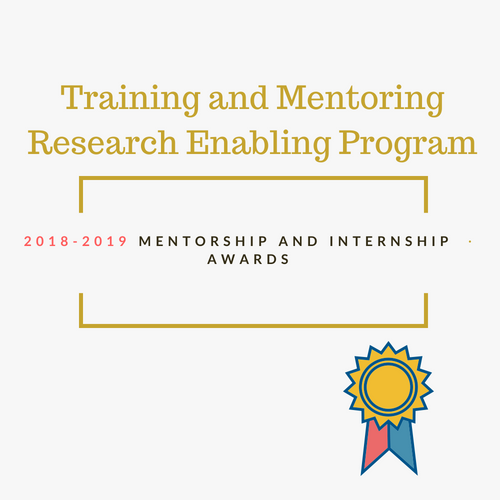CONTENTS
[bs_collapse id=”collapse_dc4e-a604″]
[bs_citem title=”
1. Terms of Reference for the Steering Council
” id=”citem_658f-c555″ parent=”collapse_dc4e-a604″]
- Ensure that the Vision and Mission of the SPOR Network are fulfilled through a strategic, accountable, committed leadership and management functions
- Through the skill-based and partnership governance structure, create the highest quality oversight, communication, support and guidance for the conduct of the patient-oriented research goals using best (corporate) governance principles;
- Develop appropriate agreement and memorandum documents articulating terms suitable for membership in the SPOR Network including specific description of participation and co-investment of resource (time, expertise, infrastructure and revenues);
- Enable strict financial oversight using standard accounting and auditing measures;
- Promote strategic partnership relationships with inaugural (core) and new members (academic, public and private) of the SPOR Network with sensitivity to balancing gender, age, language (French, English);
- Incorporate local academic and clinical nodes of the Network in strategic project development, implementation and evaluation;
- Monitor governance performance including excellence and sustainability of the leadership, management and engagement of the participating members;
- Manage conflict of interest through appropriate processes including necessary agreements establish for all aspects of governance and research partnerships.
[/bs_citem]
[bs_citem title=”
2. Steering Council Executive
” id=”citem_375c-360e” parent=”collapse_dc4e-a604″]
- To review and approve the agendas for the Steering Council Meetings;
- To review strategic initiatives and partnership proposals brought forward by the Strategic Partnerships and Innovation Standing Committee;
- To review nomination of new members or re-appointment of members to the Steering Council and its Standing Committees, as proposed by the Nomination/Governance Standing Committee;
- To advise Co-Scientific leads and Executive Director about issues arising between meetings of the Steering Council that require executive decision;
- To review the draft Annual Financial Report to CIHR and Network Partners, as submitted by management with oversight by the Finance/Audit Standing Committee;
- To work closely with the Co-Scientific Leads and Executive Director on all matters related to fulfilling the objectives of Diabetes Action Canada.
[/bs_citem]
[bs_citem title=”
3. Standing Committees of the Steering Council
” id=”citem_9322-d7b5″ parent=”collapse_dc4e-a604″]
Members of the Steering Council along with other relevant leaders (e.g. Network Directors and collaborating experts) will serve on the following three Standing Committees:
- Strategic Partnerships and Innovation Standing Committee
- Nomination/Governance Standing Committee
- Finance/Audit Standing Committee
[/bs_citem]
[bs_citem title=”
4. Terms of Reference for the Standing Committees
” id=”citem_2abd-b60a” parent=”collapse_dc4e-a604″]
a) Strategic Partnerships and Innovation Standing Committee
- To develop and oversee the implementation of all the internal and external strategic partnerships for the collaborative research, KT and education projects that are undertaken by the Network Goal Groups;
- Responsible for advising about the ongoing strategic planning and evaluation of these activities;
- To receive the annual reports of each of the Goal Groups and the Scientific Advisory Panel and to advise the Steering Council;
- To advise about the strategic plans for support and sustainability of the Network.
b) Nomination/Governance Standing Committee
- To recruit and nominate members of the Steering Council including the Executive. A slate of new members will be brought forward to the Steering Council annually as necessary in their Fall Face-to-Face Meeting;
- The Committee Chair along with the Chair of the Steering Council and Co-Leads will be responsible for orientation of new members of the Council;
- Responsible for organizing and implementing the evaluation of the performance of the Steering Council as well as the annual performance of the Co-Leads (Academic);
- To assist in recruitment of Members of the Standing Committees of the Steering Council
c) Finance/Audit Standing Committee
- To develop the annual revenue/expense budget of the SPOR Network for approval by the Steering Council;
- To report the quarterly actual against budget to the Steering Council;
- To oversee the annual formal financial audit for the Network’s annual report.
- To recommend an auditor for the SPOR Network
[/bs_citem]
[bs_citem title=”
5. Patient-Oriented Research (POR) Program Committee
” id=”citem_a46d-7e0a” parent=”collapse_dc4e-a604″]
- Coordinates and monitors all research, KT and education translation activities within the Network with advice from the Patient Circles
- Ensure the work plans are executed with adherence to timelines
- Evaluative reporting on outputs and outcomes
- Advises the Steering Council about new Network members
- Provides guidance and feedback on strategic directions of the Network, including changes to implementation of projects or development of new opportunities
- Advises Goal Groups about new opportunities for acquiring new revenues and partners
- Receives annual reports of all of the projects and evaluates progress toward target deliverables and milestones
- Assists in preparation of the annual budget with the Executive Director and DAC Administrative team
- Assists the management team in ensuring timely reporting of the revenues and expenses and assessing financial targets according to the planned budget throughout the year
- Works closely with institutional fund-raising leads to leverage new resources to meet and exceed the target for matched funding
Members:
The POR Program Committee represents the core Principal Applicants and Principal Knowledge Users of Diabetes Action Canada SPOR Network and invited subject matter experts who are responsible for the implementation of all of the programs and projects constituting this research, knowledge translation and training alliance. This meeting is held monthly and is meant to ensure continual communication, relationship-building, collaboration and synergy among our key leaders. The POR Program Committee is an integral part of the Diabetes Action Canada governance structure and provides strategic, critical and innovative thinking in the implementation of Diabetes Action Canada programs and projects.
To see more on this committee click here
[/bs_citem]
[bs_citem title=”
6. Patient Circles
” id=”citem_0d04-7067″ parent=”collapse_dc4e-a604″]
Diabetes Action Canada Patient Circles: Overview and Terms of Reference
Goals of the Patient Circles
The goals of the Patient Circles are:
- to foster patient-oriented research relevant to diabetes; and
- to contribute to better quality research on diabetes and its related complications.
To accomplish these goals, the Patient Circles aim to:
- Bring together diverse groups of people who bring a variety of backgrounds, expertise, ideas, types of diabetes, and personalities
- Foster understanding across these groups
- Create a community of people living with diabetes and their caregivers (hence referred to as Patient partners) who will be involved fully as partners of the Network
- Build capacity for patient engagement in research on diabetes and its related complications in collaboration with the Training and Mentoring Group of the Network
- Ensure that Patient partners are involved at every level (governance, tactical and operational) of the Network and in all phases of the research process (planning of studies, conducting the studies, disseminating the studies’ results, and implementing results of studies)
- Foster communication among and between researchers and those whose lives are most affected by research findings, namely, patients and their family members.
We will regularly report on our progress on these points.
Responsibilities of Members of Patient Circles
- Articulate what matters to patients, families, and communities to inform what diabetes-related research should be done and how it should be done
- Bring knowledge and ways of knowing from other communities to diabetes research
- Support a strong patient voice in working groups, committees and research teams
- Identify and establish local connections to build Diabetes Action Canada’s network of Patient partners
- Share news about Diabetes Action Canada with their communities
- Help disseminate research findings within communities of people affected by diabetes (including, if desired, helping to organize meetings where researchers can bring research findings to communities or health professionals such as certified diabetes educators or dietitians can present best practices)
- Solicit feedback from members of those communities of people affected by diabetes
The Patient Circles adhere to the Guiding Principles set out by the Canadian Institutes of Health Research (CIHR) in the Patient Engagement Framework. These are:
- Inclusiveness: Patient engagement fully integrates a diversity of patient perspectives
- Support: Adequate support and flexibility are provided to patient participation to ensure that they can contribute fully to discussions and negotiations
- Mutual Respect: Researchers, practitioners, and patients acknowledge and value each other’s expertise and experiential knowledge
- Co-Build: Patients, researchers, and practitioners work together from the beginning to identify problems and gaps, set priorities and work together to produce and implement solutions.
This is a living document, as the Patient Circles become more established and as Diabetes Action Canada progresses, changes may be required.
Leadership & Membership of the Patient Circles
To begin, there will be three distinct Patient Circles composed of diverse groups of people who live in Canada and who have diabetes themselves (type 1, type 2 or other types) or who are primary caregivers for persons with diabetes. Each Circle (Collective Patient Circle, Indigenous Patient Circle, Francophone Patient Circle) will include about 12-16 members. The Collective Patient Circle will include at least two liaisons from each of the other Circles. Liaisons will help facilitate smooth communication between Circles and to help ensure that the Collective Patient Circle appropriately incorporates the voices of members of specific populations. Over time, the structures of Circles may change. For example, we initially envisioned having a separate Circle of people who immigrated to Canada as adults, but members of this Circle preferred to be integrated into either the Collective or Francophone Circle, depending on preferred language. We may also add more Circles; for example, we envision possibly adding a French-speaking Indigenous Patient Circle, a Youth Circle, and perhaps others. The Circles will be structured as follows:
Collective Patient Circle
- 12-16 members, at least 4 who are also members of the other 2 Patient Circles
- Persons ensuring functioning of Circle: Holly Witteman, Olivia Drescher
- Additional support: Jon McGavock, Joyce Dogba, Marie-Claude Tremblay
- Anticipated frequency of meetings: 8 meetings per year, 90-minute teleconferences
- Language of meetings: English
Francophone Patient Circle
- 12-16 members, including at least 2 who are also members of the Collective Patient Circle
- Persons ensuring functioning of Circle: Joyce Dogba, Olivia Drescher
- Additional support: Jon McGavock, Holly Witteman, Marie-Claude Tremblay
- Anticipated frequency of meetings: 4 meetings per year
- Language of meetings: French
Indigenous Patient Circle
- 12-16 members, including at least 2 who are also members of the Collective Patient Circle
- Ideally, this Circle will include 2-3 elders
- Persons ensuring functioning of Circle: Alex McComber, Jon McGavock, Marie-Claude Tremblay, Pusha Sadi
- Additional support: Holly Witteman, Joyce Dogba, Olivia Drescher
- Anticipated frequency of meetings: 4 meetings per year
- Language of meetings: Mostly English; Indigenous languages when possible
Patient Circles’ representativeness
Each Patient Circle will aim to have an approximately equal representation of men and women.
Taken together, the Patient Circles will also aim to represent:
- People of different ages, racial, ethnic, and socioeconomic backgrounds.
- People whose lives are affected by type 1, type 2, and other types of diabetes.
- People from different regions of Canada.
- People who are Indigenous from nations located within Canada, settlers born in Canada or who immigrated as children, and people who immigrated to Canada as adults
SPOR Diabetes Network Patient Engagement and Indigenous Health Team Roles
Diabetes Action Canada’s Patient Engagement and Indigenous Health teams will support and coordinate activities of the Patient Circles. They will:
- help plan the meetings;
- organize teleconferences;
- distribute materials and minutes to Patient partners, specifically:
- send meeting documents by email as soon as they are available, in both Microsoft Word and pdf formats, and
- aim to send a final package of meeting documents one week in advance of the meeting, noting documents that are duplicates of those previously sent; and
- Provide administrative and other aid as required by members of the Patient Circle.
Communication guidelines
Our goal in all communication is to understand and be understood. To that end, we will:
- avoid jargon and acronyms as much as possible,
- explain specialized terms whenever it is not possible to avoid using them, and
- Avoid tables and figures in documents to allow screen readers to more easily interpret the document.
Role of the Patient Circles
The Patient Circles are advisory and guidance bodies. They advise and guide Diabetes Action Canada on multiple levels to ensure that the network is responsive to what matters to patients. The Patient Circles advise the Steering Committee. The Steering Committee holds the ultimate governance responsibility for Diabetes Action Canada and has 50% patient or patient representative membership (6 members). Some of these may be members of the Patient Circles.
The Patient Circles also advise on research projects in a number of different ways. Advising on research projects includes discussing research projects at Patient Circle meetings to provide guidance to researchers to help make the research more relevant to patients. Members of Patient Circles as well as other patient members of DAC may also serve as Patient partners on research projects, bringing their expertise from their lived experience with diabetes to the research. Patients can provide expertise in many ways, including their experience of living with diabetes and, if applicable, complications; experience with the health system (care delivery), experience with specific treatments (drugs, surgeries, devices), and community needs.
Levels of Involvement & Time Commitments
All levels of participation are encouraged and welcomed in the Patient Circles. It is understood that the level of involvement and the time commitment possible will vary between members, given the diversity among the Patient Circles members’ jobs, personal commitments, wellness and illness, and other supports. Depending on the level of involvement, the anticipated workload for most Patient partners will be 0.5-2 hours per week.
Members have the option to scale their commitment at any time: When a Patient partner decides to change his/ her level of commitment, he/ she may inform the lead(s) of the research team(s) or Patient Circle(s) and the Patient Engagement Coordinator. Sometimes during times of difficulty in a person’s life, it may be necessary for him/her to step away from his/her role on the Circle. In such cases, the Circle may “keep the person’s seat warm” so that they may return to the Circle when they are able. The Patient Circles will make sure that there is a succession plan for members for when they leave the Circle.
Learning from each other: When new Patient Circle members come on board, they will be offered a brief orientation and mentorship from another member. All Patient Circle members are strongly encouraged to participate in a free training session on Patient-Oriented Research. When a Patient Circle member leaves, the Patient Engagement team will organize a final meeting in which that member may provide any parting thoughts and advice they have to improve our work in future.
Meeting frequency: The Collective Patient Circle will meet approximately eight (8) times per year, for 90 minutes by teleconference, online technology or other method selected by the group. Other Patient Circles will meet approximately four (4) times per year, for 60-90 minutes by teleconference, online technology, or other method selected by the group. These meetings will take place during the time of day or evening most convenient for all participants, alternating if necessary to balance needs. Full-day, in-person meetings will take place at least once per year, budget permitting, ideally in different locations. Meeting frequency and method may be adapted according to the views of Circle members. For example, a Circle may choose to have less frequent, in-person meetings.
Term length: Patient Circle members will initially be encouraged to sit for a term of 1 year, starting from the first full meeting of Diabetes Action Canada Patient Circles, May 2017. After the first year, we hope to maintain at least two thirds of Patient Circle members as active Circle members, with new members joining to help provide new perspectives and allow exiting members to pursue other activities, including possibly other roles within Diabetes Action Canada. Ultimately, we aim to have Patient Circle members take up 3-year terms, with one third of the members finishing their term each year. In this way, participation renewal will be staggered to ensure that there are experienced members, as well as new members on the Patient Circle at all times. Existing members will help informally mentor new members. As the Patient Circles take shape in the first two years, the Patient Engagement team will help to identify which members wish to continue their terms or step back, and will structure ongoing terms accordingly to balance the Circles.
Chairs: Chairship of meetings will be determined by each Circle. It is suggested that chair responsibilities be assumed by those who wish to assume them, sharing responsibilities as needed, with rotating chairs if desired. Meeting chairs will have support from the Patient Engagement team.
Decisions and Quorum: As primarily advisory bodies, Patient Circles will not need to take formal votes frequently. When decisions are required, the Circles will aim for consensus, with an ethic of collaboration, cooperation, and trust, aiming always for respectful debate in which we all seek to understand and be understood. If consensus cannot be reached, those who disagree with the group’s decision may include their concerns in the final report to ensure that these are documented. Because the liaisons represent specific groups who may have particular needs, when decisions are made on the Collective Patient Circle that require a vote, liaisons will be invited to bring issues and/or proposed decisions to their Circles for further discussion prior to the Collective Patient Circle’s vote. The quorum of the Collective Patient Circle (number of members whose presence is necessary to make a binding decision) will be half of its members plus 1, with at least 1 liaison from each other Circle present.
Communication: The Patient Circles will explore options (i.e., methods and frequency) for communication between meetings of the Patient Circles. This can take the form of social media, e-mails, newsletters etc. as deemed most appropriate and effective by the members of the Patient Circles.
Working groups and committees: As the initiative evolves, a number of working groups or standing committees may be established which will provide more focused work. Members of the Patient Circles will be encouraged to join as many working groups as time and interest allows.
Compensation: In recognition for their time spent and valuable expertise, members of the Patient Circles will be offered compensation in accordance with the Diabetes Action Canada Compensation Policy. Compensation will be provided for selected activities, including both meetings and preparation time for meetings. Travel and accommodation costs will be reimbursed. Patient partners will have the option to decline to be compensated.
Opportunity for community at large to provide input to the Circles: Members of the Patient Circles will be ambassadors and champions by liaising with other community organizations and groups. They will bring back any relevant input to the Patient Circles. Members of the Patient Circles are welcome to bring in any idea and/or suggestion from the community for discussion within the Circles.
References
This document draws from a number of other documents, including the Canadian Institutes of Health Research (CIHR) Patient Engagement Framework and the Patient Council Terms of Reference developed by the Can-SOLVE CKD SPOR Network and generously shared with other SPOR Networks.
[/bs_citem]
[bs_citem title=”
7. Project Coordinators Committee
” id=”citem_ee7c-7c89″ parent=”collapse_dc4e-a604″]
The Project Coordinators Committee provides a valuable source of information to the network. They are often the implementers of research and main connection among Goal Groups. They also report on the status of the Research programs and Research enabling programs including activities, progress, deliverables, events, etc.
The Committee comprises the Project Coordinators of the Goal Groups and the staff of DAC Administration. The members of the Committee are:
Chair: Tracy McQuire, Manager/Research Operations & Project Coordinator, Clinical Trials
Members:
- Olivera Sutakovic, Project Coordinator, Diabetic Retinopathy
- Helena Medeiros, Project Coordinator, Health Informatics
- Pusha Sadi, Project Coordinator, Indigenous Peoples’ Health
- Olivia Drescher, Project Coordinator, Patient Engagement
- Michelle Murray, Project Coordinator, Training & Mentoring
- Annie Barbeau Project Coordinator, Knowledge Translation
- Conrad Pow, Project Coordinator, Digital Health to improve Diabetes Care
- Amy Clare, Project Coordinator, Sex and Gender
- Abdelrahman Zamzam, Project Coordinator, Foot Care and prevention of lower extremity Amputation.
- Mildred Lim, Business Officer
- Jessica Antwi, Administrative Assistant
[/bs_citem]
[bs_citem title=”
8. Health Informatics Working Committee
” id=”citem_600c-0b5e” parent=”collapse_dc4e-a604″]
The Health Informatics Working Committee is an ad-hoc committee established to develop a health technology strategy across the research programs of Diabetes Action Canada.
Members of the Health Informatics Working Committee:
Chair: Catharine Whiteside
Members:
Michael Brent, Joe Cafazzo, Jean-Pierre Després, Neil Drummond, Jean-Francois Ethier, Shivani Goyal, Michelle Greiver, France Légaré, Gary Lewis, Tracy McQuire, Bruce Perkins, Conrad Pow, Matthew Tenant, David Wong
[/bs_citem]
[/bs_collapse]








